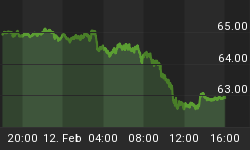In Latin, Libra means “balance”. In the world of finance, it could be upsetting the balance to the point of no return. Facebook wants to challenge Bitcoin for the crypto throne, but now House Democrats are throwing a digital wrench in this hegemonic plan. They see ‘massive risks’ and are asking Facebook to slam on the brakes.
Earlier this month, Facebook released the Libra whitepaper, detailing its plans to dump its own Libra cryptocurrency on the market next year, targeting its massive 2-billion-strong user base with the opportunity to buy goods and transfer money for zero fees.
On Tuesday, however, those high-profile cryptocurrency plans were brought into question by House Democrats, who ‘penned’ a letter to Facebook CEO Mark Zuckerberg and other FB executives, noting that “the scant information provided about the intent, roles, potential use, and security of the Libra and Calibra exposes the massive scale of the risks and the lack of clear regulatory protections”.
“These vulnerabilities could be exploited and obscured by bad actors, as other cryptocurrencies, exchanges, and wallets have been in the past.”
So, did Zuckerberg jump the gun on this, or was the LIbra whitepaper just meant to test the waters?
Many might have anticipated that regulators would have a problem with this.
But what is most striking of all is the concern not that Libra could unseat Bitcoin, but that it could unseat the U.S. dollar--and potential upset U.S. monetary policy in general.
“It appears that these products may lend themselves to an entirely new global financial system that is based out of Switzerland and intended to rival U.S. monetary policy and the dollar. This raises serious privacy, trading, national security, and monetary policy concerns for not only Facebook’s over 2 billion users, but also for investors, consumers, and the broader global economy,” the letter said.
Related: Colorado Rakes In $1 Billion In Pot Revenue
The difference is that Libra isn’t just a speculative asset. It’s a stablecoin, which means that it will be backed by physical assets (think: Tether). That means it wouldn’t be as volatile as Bitcoin, but it also makes it scary. It stands to be far more significant than Tether because of Facebook’s user base and the fact that an astonishing 27 multinational organizations (like Visa, Mastercard and Paypal) would back it.
The plan, according to the White Paper, would be for these multinationals to contribute to the Libra Reserve and take over management from Facebook by the end of this year. Oh, yes, and as the House Democrats have noted, it will be based in Geneva, Switzerland--no the U.S.
And it’s not just the U.S. Democrats that are worried.
Emerging markets should be concerned, too.
According to former deputy-governor of the Reserve Bank of Australia, Stephen Grenville, the world should also be concerned about the risk Libra poses to developing Asia’s currencies--”especially mid-sized open economies in Asia with easily-traded currencies”.
Not only would Libra have a huge competitive advantage in these markets, but it would also “scoop up the supplementary prize: the users’ data”, writes Glenville for Nikkei Asian Review. And beyond that, if it makes good on its promise to make cross-border transactions as easy as a click, it would blow away other international transfer systems and their margin fees. Even better, Libra will be backed by a basket of major currencies.
It sounds perfect, but Glenville warns it could “lead to major financial instability for emerging economies, especially in the Asian region, which is mostly more open to global financial flows than Africa or Latin America”. The biggest concerns should be Indonesia, Thailand and South Korea.
If Libra succeeds, “the capital-flow reversals and ‘sudden stops’ which are currently a serious but manageable macro-economic problem could easily become a full-blown crisis,” he warns.
By Michael Kern for Safehaven.com
More Top Reads From Safehaven.com:

















